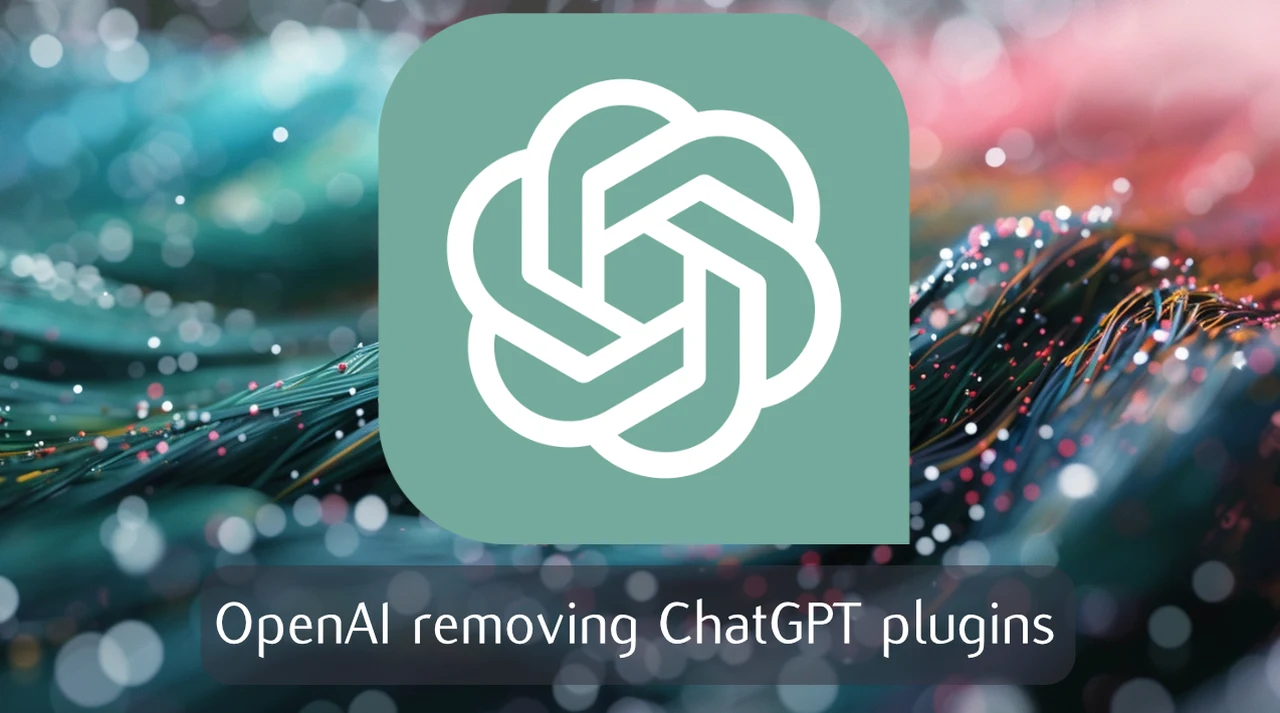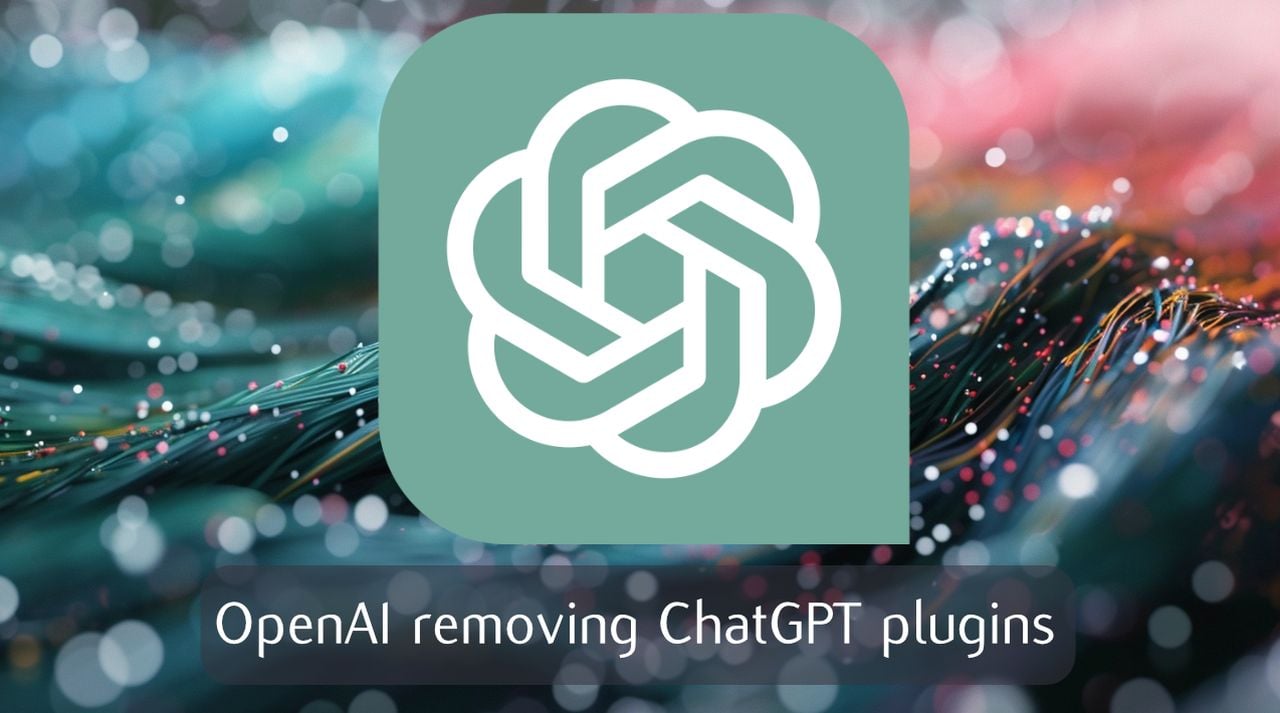
OpenAI, a leader in artificial intelligence, and the development team responsible for creating ChatGPT and more recently SORA is making a significant change to its conversational AI platform. The company has announced that it will be moving away from the current system of ChatGPT plugins and introducing custom GPT models instead. This change is set to take place on March 19, 2024, and it’s a move that’s expected to enhance the interactive experience for users. So don’t worry about losing your favorite plugin as it will most probably be replaced with a custom GPT from the same development team.
The new direction will be led by the launch of the GPT Store, a marketplace that will offer a variety of GPT models. These models are designed to meet the specific needs of different users. The store will feature an easy-to-use search function to help users find the right GPT model to replace the plugins they are currently using.
Custom GPTs
The custom GPT models that will be available in the GPT Store are being developed to be just as capable as the plugins they are replacing. OpenAI has been listening to the feedback from its user community and incorporating it into the development of these models. The company’s move to custom GPT models is a reflection of the success and widespread adoption of GPT technology, as well as the influence that users have on the platform’s development.
As part of this transition, the plugin store will no longer accept new conversations or installations after the announced date. However, OpenAI is encouraging its users to start exploring the GPT Store and get familiar with the custom GPT models that will soon be available. It’s important for users to note that any ongoing conversations with the current plugins will continue to work until April 9, 2024. After that date, these conversations will be gradually phased out.
Removal of Plugins from ChatGPT
OpenAI’s decision to shift from ChatGPT plugins to custom GPT models is a reflection of the company’s responsiveness to user needs and the evolving landscape of conversational AI technology. The introduction of the GPT Store is a strategic move that aims to make the transition as smooth as possible for users. It represents an opportunity for users to continue engaging with a sophisticated conversational AI platform, but with an even more personalized and improved experience.
The move to custom GPT models is part of OpenAI’s broader strategy to stay at the cutting edge of AI technology. By offering a marketplace with a diverse range of models, OpenAI is ensuring that users have access to the most advanced tools to meet their conversational AI needs. The GPT Store will serve as a one-stop-shop for users to find models that are tailored to their specific requirements, whether they are looking for something to handle customer service inquiries, assist with language translation, or provide engaging content creation.
The transition to custom GPT models is also indicative of the growing trend in AI towards personalization and specialization. As AI technology becomes more sophisticated, there is an increasing demand for models that can handle specific tasks with a high level of expertise. OpenAI’s move to offer custom GPT models is a response to this demand, providing users with the ability to choose models that are optimized for the tasks they need to accomplish.
Understanding the Shift to Custom GPT Models
For users who have come to rely on the ChatGPT plugins, the transition to custom GPT models may seem daunting. However, OpenAI has assured users that the process will be straightforward. The GPT Store will not only offer a wide selection of models but will also provide guidance and support to help users make the switch. OpenAI’s goal is to ensure that users can continue to rely on its platform for high-quality conversational AI interactions without any disruption to their workflows.
As the date for the transition approaches, OpenAI is working diligently to prepare the GPT Store and the custom GPT models for launch. The company is also engaging with its user community to gather feedback and make any necessary adjustments to ensure that the new models meet user expectations. OpenAI’s focus is on delivering an AI platform that is not only powerful and versatile but also user-friendly and accessible.
The shift from ChatGPT plugins to custom GPT models is a bold step for OpenAI, but it is one that is grounded in a deep understanding of the needs of its users and the potential of AI technology. As the company continues to innovate and push the boundaries of what is possible with conversational AI, users can look forward to a future where their interactions with AI are more personalized, efficient, and effective than ever before.
The Role of the GPT Store in AI Accessibility
OpenAI’s move to custom GPT models marks a significant evolution in the field of artificial intelligence. This transition is designed to enhance the interactive experience for users by providing them with AI models tailored to their specific needs. The custom models are expected to offer the same, if not greater, capabilities as the existing ChatGPT plugins. By focusing on the development of these specialized models, OpenAI is addressing the growing demand for personalized AI solutions that can perform tasks with greater precision and relevance to the user’s requirements.
The introduction of the GPT Store is a strategic initiative by OpenAI to facilitate the adoption of custom GPT models. This marketplace will serve as a hub where users can easily search for and access a diverse range of GPT models. The store aims to simplify the process of finding the right AI model for each user, whether they need assistance with customer service, content creation, or any other specialized task. By providing a one-stop-shop for these advanced tools, OpenAI is ensuring that users have the resources they need to meet their conversational AI needs effectively.
The trend towards personalization and specialization in AI is becoming increasingly prominent as technology advances. Users are seeking AI models that can handle specific tasks with a high degree of expertise. OpenAI’s initiative to offer custom GPT models is a direct response to this trend, allowing users to select models that are finely tuned for the tasks they wish to accomplish. This approach not only enhances the user experience but also pushes the boundaries of what conversational AI can achieve, paving the way for more sophisticated and nuanced AI interactions.
Filed Under: Technology News, Top News
Latest timeswonderful Deals
Disclosure: Some of our articles include affiliate links. If you buy something through one of these links, timeswonderful may earn an affiliate commission. Learn about our Disclosure Policy.

